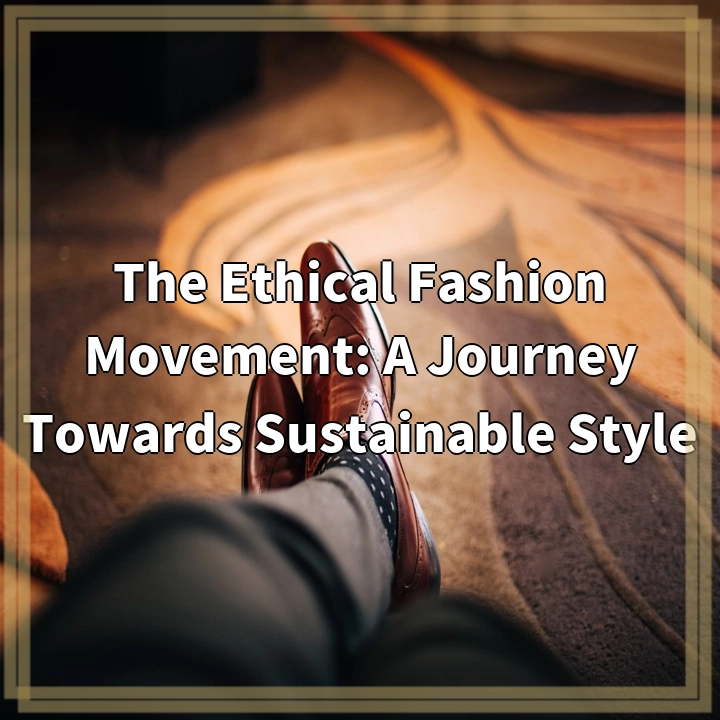
What is the Ethical Fashion Movement?
The Ethical Fashion Movement is a global initiative aimed at creating a more sustainable and responsible fashion industry. It focuses on promoting fair labor practices, minimizing environmental impact, and ensuring transparency throughout the supply chain. Ethical fashion seeks to address the social, economic, and environmental issues that have long been associated with the fashion industry.
Real-World Problems Associated with Ethical Fashion
1. Exploitation of Garment Workers
One of the biggest challenges in the fashion industry is the exploitation of garment workers. Many workers, particularly in developing countries, face abysmal working conditions, unfair wages, and long hours. Ethical fashion aims to address these issues by advocating for fair wages, safe working conditions, and the protection of workers’ rights.
2. Environmental Impact
The fashion industry is notorious for its significant environmental impact. From the excessive use of water and chemicals in production to the carbon emissions from transportation, the industry contributes to pollution, deforestation, and climate change. The Ethical Fashion Movement aims to minimize this impact by focusing on sustainable practices, such as using organic and recycled materials, reducing waste, and promoting circular fashion models.
3. Lack of Transparency in the Supply Chain
Many fashion brands operate with a lack of transparency, making it difficult for consumers to know where and how their clothes are manufactured. This lack of transparency allows for potential human rights abuses, unethical practices, and environmental harm to go unnoticed. The Ethical Fashion Movement emphasizes the need for brands to be transparent about their supply chains, allowing consumers to make more informed and ethical choices.

Solutions to Ethical Fashion Challenges
1. Empowering Garment Workers
To address the exploitation of garment workers, the Ethical Fashion Movement encourages brands to ensure fair wages, safe working conditions, and the protection of workers’ rights. This can be achieved through partnerships with fair trade organizations, implementing codes of conduct, and conducting regular audits to ensure compliance.
Additionally, consumers can support brands that prioritize ethical practices and fair treatment of workers, thereby creating demand for change within the industry.
2. Embracing Sustainable Practices
To reduce the environmental impact of the fashion industry, the Ethical Fashion Movement promotes sustainable practices at every stage of the supply chain. This includes using organic and recycled materials, adopting low-impact production techniques, reducing waste through recycling and upcycling, and promoting circular fashion models that emphasize product longevity and reusability.
Brands can also invest in research and innovation to develop new eco-friendly materials and technologies, while consumers can opt for second-hand clothing, participate in clothing swaps, and prioritize quality over quantity in their purchasing decisions.
3. Ensuring Supply Chain Transparency
The Ethical Fashion Movement advocates for increased transparency in the fashion industry’s supply chain. Brands should disclose where their products are made, the conditions in which they are produced, and the environmental impact of their manufacturing processes. This can build trust with consumers, enable informed decision-making, and hold companies accountable for their actions.
Certifications and labeling systems, such as Fair Trade, Global Organic Textile Standard (GOTS), and the Higg Index, can provide further assurance of ethical production practices. Consumers can also support transparency by actively seeking information about brands and products, asking questions, and supporting brands that prioritize transparency.















